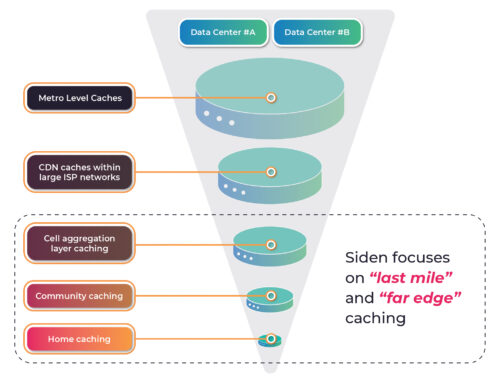Since the advent of the COVID pandemic, tens of thousands of articles have been written about work from home (WFH). What has been less discussed is that a company and an organization can thrive when the concept of the location of a workspace and the “block” of “office hours” varies from employee to employee. At Siden, we are a fully remote organization with 50+ employees spread across 15 cities and 12 time zones, which obviously implies that we are working from locations across the globe and we are working during differing hours.
Many large companies with vocal leadership have been nudging, or emphatically demanding, a return to the traditional office space, in part due to a theory that in-office productivity is greater than the productivity of people who work outside of a traditional centralized office. At Siden, we are a startup with a different tact; we can only afford to hire the best contributors for each of the rare positions that we need to fill. We are able to cast a wide net for talent by meeting the experts where they choose to work rather than artificially constraining ourselves to the smaller pool of talent willing to relocate to some location chosen, likely, for some historically legitimate reasons, that may no longer be such a pressing reason today.
We’ve found, through a series of on-going employee surveys and analysis of our internal key performance indicators, that our peers are more productive and happier with their work because they have the freedom to live where they want and can structure their working hours with a high degree of freedom and trust. Happier employees are more satisfied with their job and they are less likely to quit.
Speaking of quitting, we have had new hires back out of positions with the company relatively quickly, which is actually good – we hire smart and intuitive people; if the reality of the work does not match the expectations of the experience, it is good for both parties to change the relationship early. This reveals another great thing about having an all remote workforce; the barriers to entry and exit from the company are not artificially raised due to the need to relocate or uproot a family. If an employee joins the company and something changes in their life that makes continued employment with us less than ideal, they don’t have to worry about relocation expense “payback penalties”; they don’t say, “well, I moved my kids to another school district, so let’s tough out a less than ideal work experience”. We get teams with shared work values without introducing change and chaos into our personal lives through relocations.
We have partners at Siden who have changed work locations to support loved-ones through long-term illnesses, or to train their dog to surf, to flee an unjust war, to build a cabin in the mountains, or to support a partner’s move for a job with an inflexible work location. Working from anywhere is a job perk – a perk that happens to benefit the company, our employees, and the people about whom they care.
Kenneth
Executive Director, Programs





